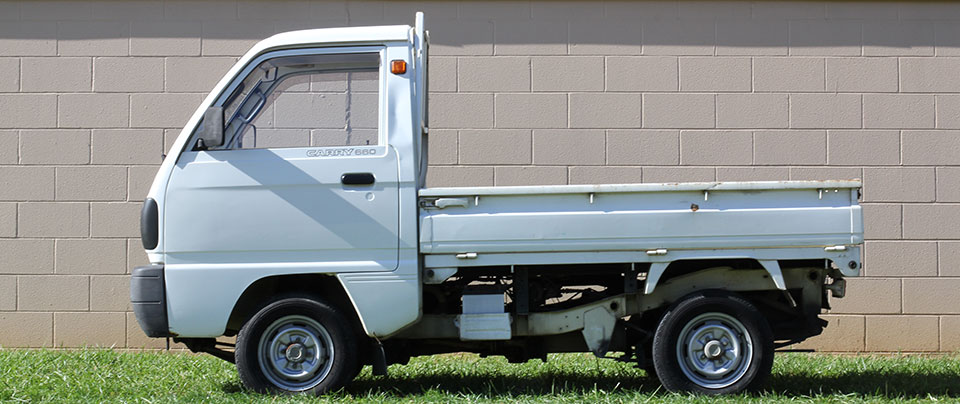Mini Truck Gas Mileage

In a world where environmental consciousness is on the rise, and the cost of fuel continues to fluctuate, the importance of optimizing gas mileage in vehicles cannot be overstated. Mini trucks, known for their versatility and compact design, have become increasingly popular for both personal and commercial use. In this article, we will delve into the intricacies of mini truck gas mileage, exploring tips, tricks, and technologies aimed at maximizing efficiency and reducing fuel consumption.
I. Understanding Mini Trucks:
Mini trucks, also referred to as compact trucks or micro trucks, are smaller versions of traditional pickup trucks. While they offer advantages in terms of maneuverability and ease of parking, they also come with unique challenges when it comes to fuel efficiency. The key lies in understanding the factors that influence gas mileage in mini trucks.
II. Factors Influencing Mini Truck Gas Mileage:
a. Weight and Payload Capacity: Mini trucks are designed to be lightweight, but their payload capacity can vary. Carrying excessive weight can significantly impact gas mileage. Owners should be mindful of the payload limits specified by the manufacturer and avoid overloading the truck.
b. Aerodynamics: The aerodynamic design of a vehicle plays a crucial role in fuel efficiency. Mini trucks, with their boxy shapes, may face more air resistance compared to sleeker vehicles. Utilizing aerodynamic accessories such as tonneau covers and streamlined attachments can help improve gas mileage.
c. Tire Maintenance: Proper tire maintenance is often overlooked but can have a substantial impact on fuel efficiency. Under-inflated tires increase rolling resistance, leading to decreased gas mileage. Regularly checking and maintaining the recommended tire pressure is a simple yet effective way to enhance fuel efficiency.
d. Engine Efficiency: Mini trucks come with a variety of engine options, and the efficiency of the engine can significantly impact gas mileage. Regular engine maintenance, timely oil changes, and the use of high-quality fuel can contribute to optimal performance and fuel efficiency.
III. Tips for Maximizing Mini Truck Gas Mileage:
a. Gentle Driving Habits: Aggressive driving, including rapid acceleration and sudden braking, can negatively affect gas mileage. Adopting smooth and gradual driving habits can contribute to better fuel efficiency.
b. Proper Gear Selection: Choosing the right gear at the right time is essential for fuel efficiency. Operating in the appropriate gear range ensures that the engine operates efficiently and consumes less fuel.
c. Regular Maintenance: Routine maintenance checks, including oil changes, air filter replacements, and engine tune-ups, are critical for ensuring that the mini truck operates at its peak efficiency. Neglecting maintenance can lead to decreased gas mileage and increased fuel consumption.
d. Utilizing Cruise Control: When driving on highways, utilizing cruise control can help maintain a consistent speed and reduce fuel consumption by preventing unnecessary acceleration and deceleration.
IV. Technological Advancements for Improved Efficiency:
a. Hybrid and Electric Options: With the automotive industry’s focus on sustainability, hybrid and electric mini trucks have entered the market. These vehicles offer reduced emissions and enhanced fuel efficiency, making them an attractive option for environmentally conscious consumers.
b. Advanced Fuel Injection Systems: Upgrading to modern fuel injection systems can optimize fuel delivery, resulting in improved combustion efficiency and better gas mileage. Consult with automotive professionals to explore suitable options for your mini truck.
c. Telematics and Fleet Management Systems: Businesses that rely on mini trucks for commercial purposes can benefit from telematics and fleet management systems. These technologies provide real-time data on fuel consumption, driver behavior, and vehicle performance, enabling businesses to make informed decisions to maximize efficiency.
Conclusion:
Achieving optimal gas mileage in mini trucks requires a multifaceted approach that involves understanding the vehicle’s design, adopting efficient driving habits, and considering technological advancements. By implementing the tips and tricks outlined in this article, mini truck owners can reduce their environmental footprint, save on fuel costs, and ensure that their vehicles operate at peak efficiency. As the automotive industry continues to evolve, staying informed about emerging technologies and incorporating them into your mini truck’s maintenance routine will be key to navigating the road ahead with efficiency and sustainability in mind.





